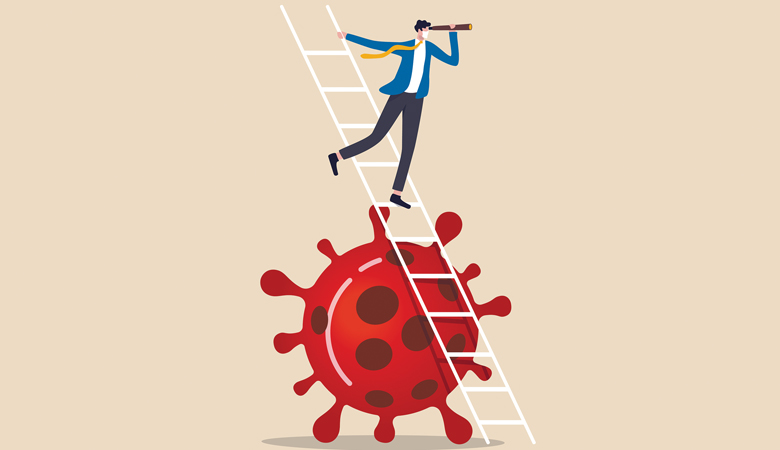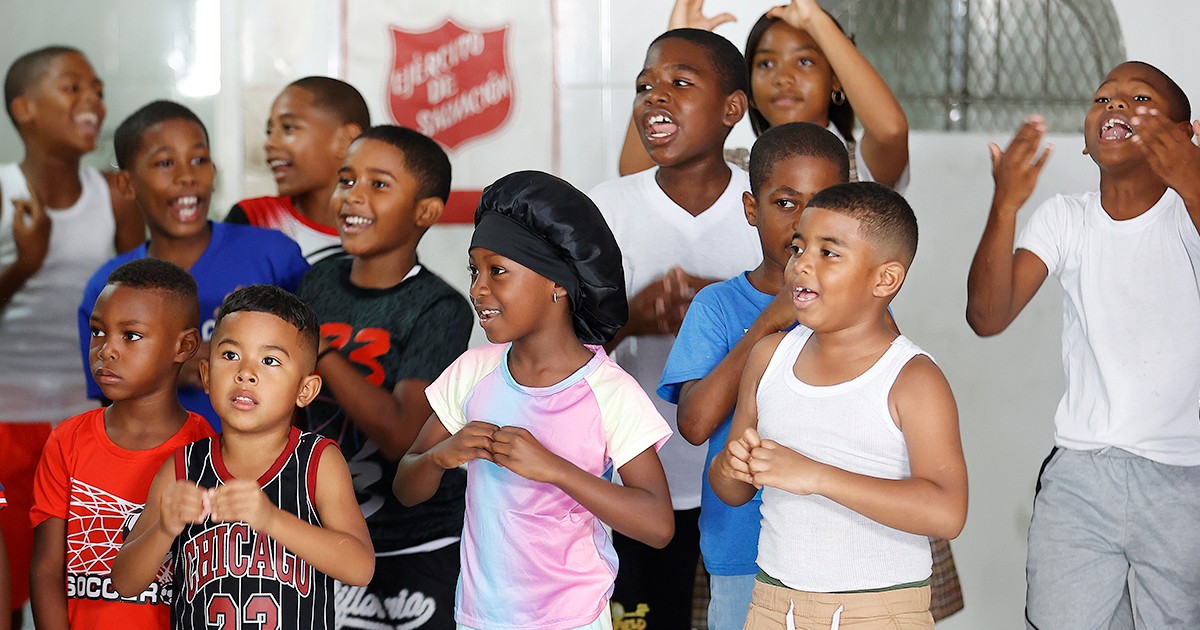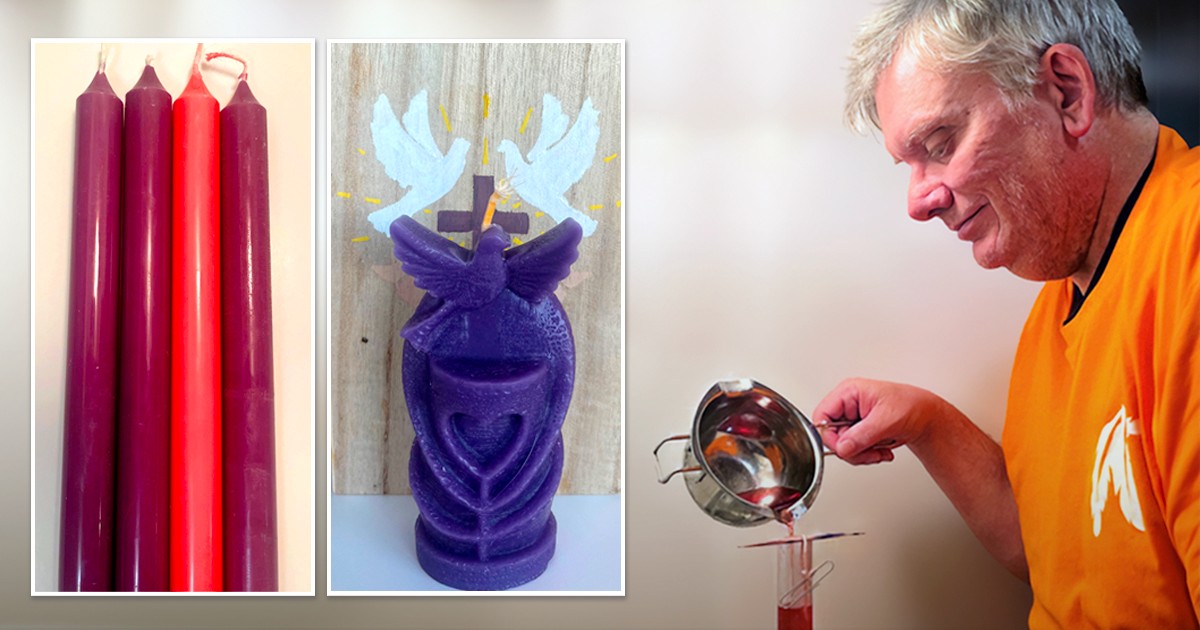By now everyone is asking the same question—how long will it be until things return to normal? I think it’s natural to long for a sense of normalcy during a time of dramatic change that doesn’t have a set end date. We long for the kids to be back in school, to be able to eat out, to worship in the presence of our church family. But if I’m being honest, I don’t really want things to go back to the way they were. Not entirely.
Looking back, there are many things I don’t like about the way things were. It was busy. Every minute of every day was filled with a task, an obligation or somewhere to be. Meals were rushed, human interactions were shortened by the next commitment in our calendar, and success was defined by how full our inbox was and how many meetings we had scheduled. Busyness became something that defined us, something we wore as a badge of honour.
I am not alone in this sentiment. In April, a poll in the United Kingdom indicated that less than one in 10 Britons wanted to return to “normal” after the lockdown is lifted. That’s right. Less than 10 percent want things to go back to the way they were. If that isn’t an indication that our western way of existing is broken, I don’t know what is.
As the world locked down, some welcome new forms of normal began to emerge. We began to breathe cleaner air and notice more wildlife in our neighbourhoods. We began to cook more and eat out less. We began to cultivate and create, rather than simply check tasks off a to-do list. Homes were filled with the smell of fresh bread, the click-clack of sewing machines and the tinkering of kids creating with LEGO.
We began to feel a stronger sense of community. Checking in on our neighbours, supporting local businesses, sharing shopping duties, and even gifting rolls of toilet paper became common occurrences. Many even distributed notes in their neighbours’ mailboxes letting them know they could be contacted for help with running errands or picking up groceries. We learned the names of those who live across the street. We were reminded that we are stronger together.
And the church—well, it revealed itself to be the people, not the building we meet in.
What if, rather than going back to normal, we used all these quarantine experiences to create a new normal?
What if everyone who could work from home did? Would our freeways be less congested and our cities more liveable? What if we continued to embrace the arts and our God-given creativity? Would our hearts be lighter and our souls be healthier? What if we carved out time to savour both our meals and the company of our family and friends? Would our relationship with food improve along with our human bonds? What if we bought only what we needed and shared with those who could not? Would our communities be strengthened and our priorities be well-ordered?
And what if the church continued to be the people—people who truly engaged with one another, people who were equipped to interact with the Bible themselves rather than simply consume a Sunday sermon, people who lifted one another up in prayer?
No, I do not want things to go back to normal. What was normal was broken anyway. Our pre-COVID existence was often one of greed, exhaustion, disconnection and backwards priorities. Our days of self-isolation gave us the gift of hindsight and an opportunity to examine what we were asked to give up. And a lot of it I don’t want back.
It is time for radical environmental, social, political and economic change. We can’t let this opportunity slip away.
So, when this virus has been beaten and restrictions are lifted, what aspects of this new way of living will you embrace? How will you define your priorities? What will you fill your days with? Let’s take this crisis as a divine gift to reflect upon what matters most and to order our lives accordingly.
I, for one, am only adding back those things that affirm my identity as a child of God, a disciple of Jesus, a steward of creation, a member of my family and a friend. These are the things that matter most.
Captain Laura Van Schaick is the women’s ministries program and resource officer.
Illustration: Nuthawut Somsuk/iStock via Getty Images Plus
Looking back, there are many things I don’t like about the way things were. It was busy. Every minute of every day was filled with a task, an obligation or somewhere to be. Meals were rushed, human interactions were shortened by the next commitment in our calendar, and success was defined by how full our inbox was and how many meetings we had scheduled. Busyness became something that defined us, something we wore as a badge of honour.
I am not alone in this sentiment. In April, a poll in the United Kingdom indicated that less than one in 10 Britons wanted to return to “normal” after the lockdown is lifted. That’s right. Less than 10 percent want things to go back to the way they were. If that isn’t an indication that our western way of existing is broken, I don’t know what is.
As the world locked down, some welcome new forms of normal began to emerge. We began to breathe cleaner air and notice more wildlife in our neighbourhoods. We began to cook more and eat out less. We began to cultivate and create, rather than simply check tasks off a to-do list. Homes were filled with the smell of fresh bread, the click-clack of sewing machines and the tinkering of kids creating with LEGO.
We began to feel a stronger sense of community. Checking in on our neighbours, supporting local businesses, sharing shopping duties, and even gifting rolls of toilet paper became common occurrences. Many even distributed notes in their neighbours’ mailboxes letting them know they could be contacted for help with running errands or picking up groceries. We learned the names of those who live across the street. We were reminded that we are stronger together.
What if, rather than going back to normal, we used all these quarantine experiences to create a new normal?Outside our neighbourhoods, we began to connect more with our family and friends. We picked up the phone and called our parents—the ones we perhaps hadn’t visited in months. We drove by friends’ houses, with balloons billowing out our car windows and honking the horn to wish them a happy birthday. We played board games around the kitchen table. Faced with the reality of mortality as COVID-19 death tolls were reported daily like sports scores, we remembered that our days are numbered, and human connections are what truly matter.
And the church—well, it revealed itself to be the people, not the building we meet in.
What if, rather than going back to normal, we used all these quarantine experiences to create a new normal?
What if everyone who could work from home did? Would our freeways be less congested and our cities more liveable? What if we continued to embrace the arts and our God-given creativity? Would our hearts be lighter and our souls be healthier? What if we carved out time to savour both our meals and the company of our family and friends? Would our relationship with food improve along with our human bonds? What if we bought only what we needed and shared with those who could not? Would our communities be strengthened and our priorities be well-ordered?
And what if the church continued to be the people—people who truly engaged with one another, people who were equipped to interact with the Bible themselves rather than simply consume a Sunday sermon, people who lifted one another up in prayer?
No, I do not want things to go back to normal. What was normal was broken anyway. Our pre-COVID existence was often one of greed, exhaustion, disconnection and backwards priorities. Our days of self-isolation gave us the gift of hindsight and an opportunity to examine what we were asked to give up. And a lot of it I don’t want back.
It is time for radical environmental, social, political and economic change. We can’t let this opportunity slip away.
So, when this virus has been beaten and restrictions are lifted, what aspects of this new way of living will you embrace? How will you define your priorities? What will you fill your days with? Let’s take this crisis as a divine gift to reflect upon what matters most and to order our lives accordingly.
I, for one, am only adding back those things that affirm my identity as a child of God, a disciple of Jesus, a steward of creation, a member of my family and a friend. These are the things that matter most.
Captain Laura Van Schaick is the women’s ministries program and resource officer.
Illustration: Nuthawut Somsuk/iStock via Getty Images Plus










Comment
On Friday, July 24, 2020, Bev Haugh said:
On Friday, July 24, 2020, Winnie Hanson said:
On Friday, July 24, 2020, Christine LeBlanc said:
On Friday, July 24, 2020, Dani said:
Leave a Comment